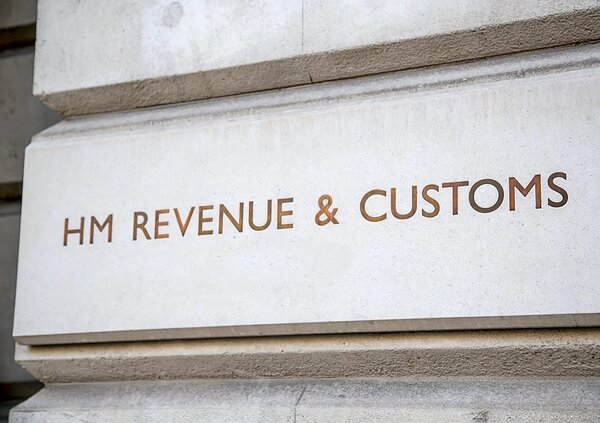Let’s Break This Down Together...
Thinking of working for yourself while living abroad, but not sure what that means for your UK taxes?
Managing your tax responsibilities across borders can feel overwhelming. Between UK residency rules, international income, and double taxation agreements, it’s easy to get confused (or miss something important).
But don’t worry! This guide will walk you through how UK tax works when you're self-employed overseas, from registering with HMRC to understanding your obligations and avoiding paying tax twice. Let’s get clear on it, together.
How to Register as Self-Employed Abroad from the UK: Understanding Your Tax Position
Working for yourself while living abroad can be liberating, but it comes with tax responsibilities that span borders. Many UK nationals don’t realise they might still need to file with HMRC despite having packed their bags, and your status as a UK national can affect your tax obligations when working abroad.
The UK’s first personal tax app, Pie tax, helps track your earnings across different countries with clear tax estimates in real-time. If you are a self employed person working abroad, your self employment status can impact your tax residency and filing requirements.
For those with ongoing self employed work, the practice of self-employment may also bring additional social security or tax obligations depending on the countries involved.
Determining Your Tax Residency
Understanding your tax residency is a vital first step for any self employed person working abroad. Your residency status determines whether you pay UK income tax on all your earnings or just on income sourced from the UK. For self employed individuals, this can have a big impact on how much tax you’re expected to pay and what income needs to be reported.
To determine if you’re a UK resident for tax purposes, you’ll need to look at the number of days you spend in the UK during the tax year, as well as your connections to the country, such as family, property, or ongoing self employed work.
Residents are generally taxed on their worldwide income, while non residents are only taxed on income that arises in the UK. The rules can be complex, so it’s important to review your situation each year to see if your status has changed.
If you’re not sure whether you’re classed as a resident or non resident, it’s worth seeking advice or using HMRC’s online tools to help determine your position.
Getting this right ensures you only pay the tax you owe and can help you take advantage of any reliefs or exemptions available to self employed people working overseas.

How to Register as Self-Employed Abroad with UK Tax Authorities
Registering as self-employed with HMRC is essential, even if you are working overseas. It is important to understand that being self-employed is not the same as being a sole trader; while all sole traders are self-employed, not all self-employed individuals operate as sole traders.
Sole traders, as well as those running a business as a company or limited company, must also register with HMRC.
If you’re working for yourself overseas, you’ll still need to register with HMRC within three months of starting your business. This applies even if you’re paying tax in another country.
The registration process is straightforward, visit the HMRC website and fill in the online registration form. You’ll need your National Insurance number and basic personal details.
For those unable to register online, HMRC offers phone and postal options. Once registered, you’ll receive a Unique Taxpayer Reference (UTR) for all future tax matters.
What Determines Your UK Tax Obligations While Abroad?
Your tax residency status is the key factor in determining what you owe to HMRC. The UK uses the Statutory Residence Test (SRT) to work this out. Your employment status, such as being employed in the UK or self-employed, will affect your tax and social security obligations, and you must ensure compliance with HMRC regulations based on your specific situation.
If you spend fewer than 16 days in the UK during the tax year (as a previous UK resident), you’ll likely be classed as non-resident.
This means you’ll only pay UK tax on UK-sourced income. For tax purposes, there is a distinction between employment and self-employment, and each has different registration and reporting requirements.
UK residents, however, are typically taxed on their worldwide income. Your residency status is determined by the SRT, which considers factors such as the number of days spent in the UK and your ties to the country.
You can expect your tax obligations to change depending on your residency status for a given period, usually the UK tax year.
When I moved to Spain while maintaining my consultancy business, I was surprised to discover I still needed to file a UK return despite being tax resident elsewhere. This common misconception can lead to unexpected penalties.
Example: If you are employed in the UK but move abroad for a period of 12 months, you may still be determined to have UK tax obligations if you maintain strong ties, such as ongoing employment or property in the UK.
Always check your status and what you can expect to owe before making international moves.
Tax Year and Deadlines for UK Expats
If you’re living in an overseas country but still have UK tax obligations, keeping track of the UK tax year and key deadlines is essential.
The UK tax year runs from 6 April to 5 April the following year, and you’ll need to submit your self assessment tax return by 31 January after the end of the tax year. Missing this deadline can result in penalties, so it’s important to mark it in your calendar.
To get started, you’ll need to register for self assessment if you haven’t already. This process can be completed online, and once registered, you’ll receive a Unique Taxpayer Reference (UTR) number. This number is required every time you file an assessment tax return or contact HMRC about your tax affairs.
If you’re earning income in both the UK and an overseas country, you may need to file tax returns in both places. Double taxation agreements between the UK and other countries are designed to prevent you from being taxed twice on the same income, so it’s worth checking if such an agreement covers your situation.
For further information or if you’re unsure about your obligations, consider seeking advice from a tax professional who understands the rules for expats and self employed individuals.
Staying organised and meeting all registration and filing requirements will help you avoid unnecessary costs and ensure you’re fully compliant with both UK and overseas tax laws.

Filing Self Assessment Returns from Overseas
The Self Assessment deadline remains 31 January after the tax year ends, regardless of where you live. Mark this date in your calendar to avoid late filing penalties. Make sure your return is submitted on time to prevent any issues.
If you’re a UK resident, you’ll need to report all your worldwide income. Payment of any tax due must be made by the deadline to avoid interest charges. Non-residents only report income that comes from UK sources.
Keep detailed records of all income and expenses in both local currency and pounds sterling. HMRC will want to see these if they ever check your tax affairs. Ensure all taxes are paid promptly to avoid interest or penalties.
Double Taxation Agreements: Not Paying Twice
The UK has tax treaties with many countries to prevent you from being taxed twice on the same income. These are called Double Taxation Agreements (DTAs).
A double taxation agreement is a treaty between two countries that determines how income earned in one country by a resident of another is taxed, aiming to avoid the same income being taxed twice.
Each agreement has specific rules about which country has taxing rights over different types of income.
These rules also determine your liability for tax and clarify who is liable to pay tax in each country under the agreement. Some income might only be taxable in one country.
For other income types, you might pay tax in both countries but can claim tax relief in one of them.
Whether you are covered by the tax laws of the UK or your home country depends on the coverage provided by the agreement. Check the specific agreement between the UK and your country of residence.
Depending on the agreement, you may be subject to the tax laws of one or both countries.
Practical Considerations for Self-Employed Expats
The following information provides practical tips for self-employed expats.
Consider keeping a UK bank account open for making payments to HMRC and receiving any tax refunds. This avoids currency conversion fees. You should also consider the cost of living abroad, as it can significantly affect your financial planning.
Your National Insurance record affects your future state pension. You might want to make voluntary national insurance contributions while abroad to protect your entitlement, and you may need a certificate from HMRC to prove your coverage if required.
These contributions can often be made for a specific period, depending on your circumstances. If you are living or working in an EU country, make sure you have the correct documentation to demonstrate your healthcare cover and entitlement.
Set up separate accounting for UK and local income. This makes tax time much easier and helps you claim the right expenses against the right income. Keep track of any asset sales and interest income, as these may have tax implications in both the UK and your country of residence.
Remember that exchange rate fluctuations can impact your tax calculations. The practice of self-employment may differ from that of employees, especially in terms of tax treatment and reporting requirements.
HMRC has specific rules about which rates to use when converting foreign currency.

Final Thoughts
Managing your UK tax affairs while self-employed abroad isn't always straightforward, but staying organised makes a huge difference.
Start by confirming your tax residency status, then understand what income you need to report to HMRC. Make use of double taxation agreements to avoid paying tax twice.
When things get complex, getting advice from an accountant who understands expat taxation can save you money and prevent headaches down the line.











